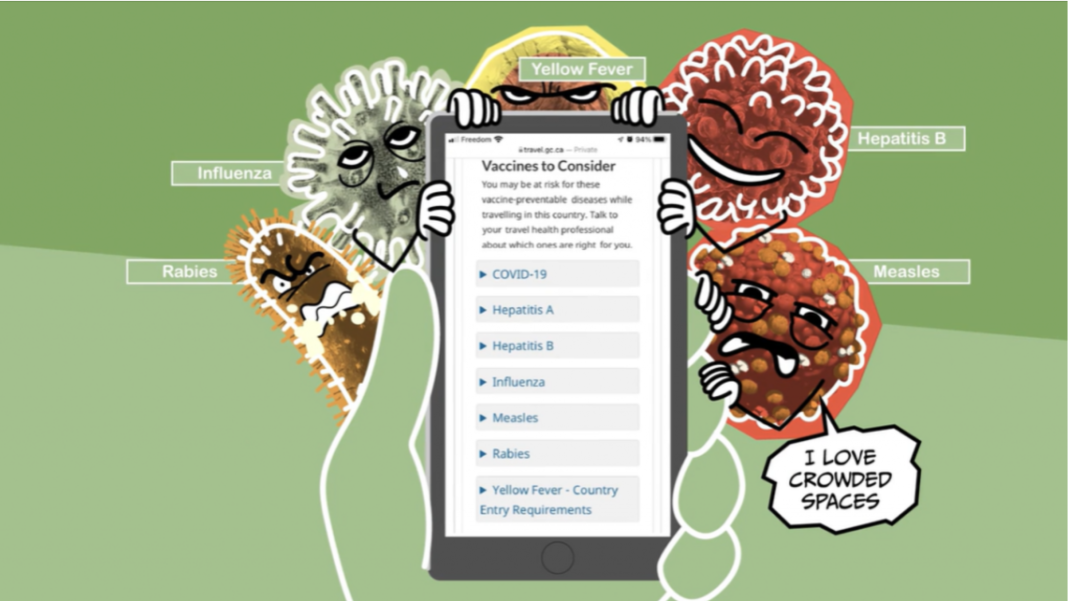With the abundance of health information about vaccines online, there is a need for an open educational resource (OER) that empowers youth to understand the importance of vaccines and make informed medical choices
In today’s digital age, where online information is abundant and conflicting, young people are challenged to find evidence-based and developmentally appropriate information to make decisions about vaccinations. Their decisions will impact not only themselves but also the next generation. Once beliefs are instilled, they are difficult to challenge and change.
Difficulties in understanding and navigating health information
We form many of our beliefs as teenagers and during our school experiences, and these go on to inform subsequent societal norms. However, much open-access health information is institutionally web-based and focused on adults or very young children. Information specifically for teens is less common and, although intellectually suitable, is not engaging or relevant to their mindset. Effective public health education requires the right kind of materials in the right format at the
right time.
Coinciding with the COVID-19 pandemic, the Canadian research tri-council (NSERC; CIHR; SSHRC) launched the Encouraging Vaccine Confidence in Canada initiative. In their youth-focused project, Drs Cook, George, and Blomgren of Athabasca University recognized that although youth access adult health information, it does not catch their interest because it is not in their voice, and although social media is engaging, it is not necessarily accurate. They invited youth in Alberta (from Sinkunia Group and Vista Virtual High School) to co-create an open educational resource (OER) that empowers youth to understand the importance of vaccines and make informed medical choices in an entertaining and scientifically accurate animation-style bildungsroman (building from adolescent experience) story.

Kori’s story
The storyline of Kori, a hopeful teen social influencer, models the development of vaccine confidence. Kori discovers and shares with an online audience the process and pitfalls of finding out about vaccination and learning how to make informed decisions. Kori shapes their understanding through dilemmas arising within their family, such as specific worries about topics getting vaccinated for overseas travel, fear of needles, understanding how to discern facts from fake news, and recognizing how emotions influence decision-making.
During the project, the youth co-creation experiences challenged and offered learning opportunities beyond normal school life. They not only increased their own science and health literacy skills while developing their critical thinking and decision- making skills, but they also experienced working with professional animators, from ideation through character development and scripting into editing. One of the youth co-creators described his experience: “…when you work together as a team, you can always leverage each other’s strengths and skills. It fosters creativity, boosts morale, and enhances communication. Plus, as a team, it’s generally just more fun.”
Beyond educational value, the animation serves as a powerful example of how open educational practices can be used to promote science and health literacy. By making the resource freely available under a CC-BY licence, the project ensures that it can be accessed and adapted by educators and learners around the world.
Finally, this OER offers a valuable resource for young people seeking to understand the importance of vaccines and make informed health decisions. Through its engaging storytelling, collaborative approach, and emphasis on critical thinking, the project has the potential to empower youth and contribute to a more informed and vaccine-confident society.
You can learn more from the co-collaborators about their experiences in their discussion at the Open Education Global Conference 2023. Further research into the processes of co-collaboration with youth is underway.
The Open Educational Resources, videos, accompanying teaching resources, and activity sheets are available in English and French.
Video links
In English – https://youtu.be/45h-WbMLjKg?feature=shared
In French – https://youtu.be/un7S1oTn_l8?feature=shared
Teaching Resource
In English – https://futurumcareers.com/Connie-Blomgren-Article.pdf
In French – https://futurumcareers.com/Connie-Blomgren-Article-FR.pdf
Activity Sheet
In English – https://futurumcareers.com/Connie-Blomgren-Activity-Sheet.pdf
In French – https://futurumcareers.com/Connie-Blomgren-Activity-Sheet-FR.pdf
Profile information
Academic Team
Drs Stella George and Connie., Blomgren. and Karen Cook, Athabasca Univesity, Canada
Youth Team
Sinkunia Group , Edmonton, Alberta Canada Vista Virtual High School, Edmonton, Alberta, Canada
Animation Team
PULP Animation, Edmonton, Alberta, Canada
Funders
Promoscience Canada, funded by Canadian Tri-Council: NSERC; CIHR; SSHRC Encouraging vaccine confidence in Canada – Competition Results.
Athabasca University, Canada’s Open University
References
- Johnson, M. (2022). Reality Check: Getting the Goods on Science and Health MediaSmarts.
- Kathy Fitch’s vaccination decision grid


